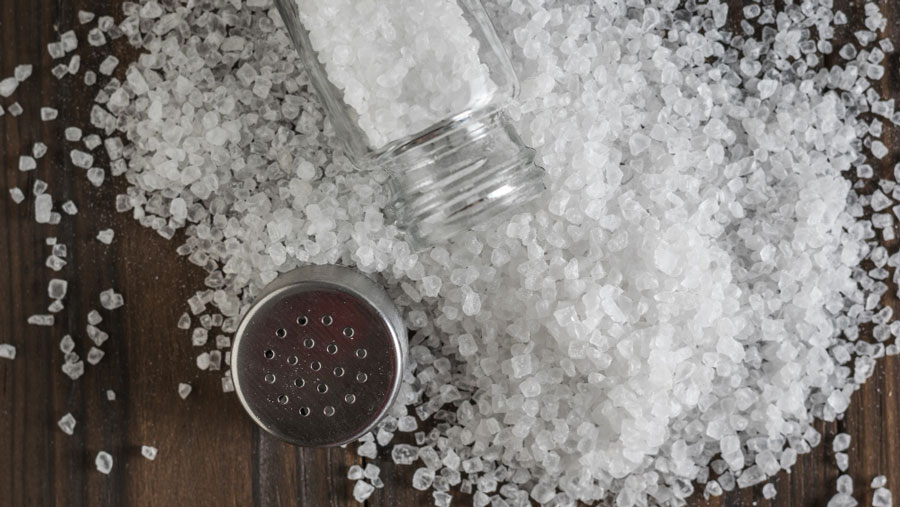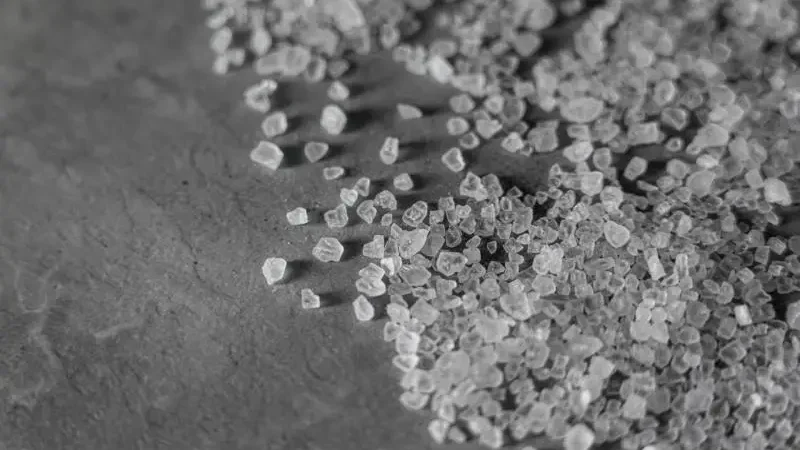Can Too Much Epsom Salt Hurt Plants? – All You Have To Know

Epsom salt has been in use for many decades. Our grannies are very familiar with it and highly applaud it when it comes to growing tomatoes and roses. However, is too much Epsom salt good for your plants?
The answer is NO! Too much Epsom salt will cause more harm than good to your plants.
If you are wondering why? Then continue reading the article to find out.
What Happens When You Apply Too Much Epsom Salt To Plants?
It Causes The Plant To Wilt
Excess Epsom salt can cause the plant to wilt. This is because it is a salt and will make it harder for the plant to take up water. So, the more Epsom you add to the soil, the more your plant will suffer.
Additionally, too much Epsom in the soil will drain water from the plant cells.
If you’re sure that your plants lack magnesium, then you can go ahead and add Epsom salt in the soil, but in the right amount. Also, this is more applicable in potted plants than in a garden.
However, the best method to add nutrients in your soil is by getting rid of infertile soil and replacing it with fertile soil. Besides, you can use mulch, which is natural with no harm to your plants.
Imbalance Of Nutrients In The Soil
It is the dream of every gardener to have soil with balanced nutrients. Such soil is good for growing all kinds of plants.
However, using Epsom salts to much will cause more harm than good. This is because it will create an immediate imbalance of nutrients in the soil. Too much magnesium in the soil will hurt the plants. Therefore, you will be harming your plant instead of boosting it.
What’s more, excessive use of magnesium sulfate in the soil has been connected to reduced root colonization of essential microbes like nitrogen-fixing bacteria.
Causes Blossom End Rot
There has been an ongoing debate on Epsom salt and whether it can prevent blossom end rot or not. The truth is that it does not help to end this problem in tomatoes.
This is because blossom end rot is a calcium deficiency in the tomato fruit and not a magnesium deficiency.
So, the more you add Epsom salt to your soil, the more you add magnesium, which might compete with calcium uptake and cause more harm than good. Therefore, adding too much Epsom salt will cause blossom end rot to become worse than better.
The best way to end blossom rot end is by mulch and regular irrigation. Make sure your plant gets the right moisture and has the required nutrients to grow.
Death Of The Plant
In the worst-case scenario, adding too much Epsom salt may cause the plant to die. If the plant is already struggling and you add excess Epsom salt to revive it, you may end up hurting it.
Before adding Epsom salt, you should find out what nutrients are required and in what quantities. For instance, it is a requirement that your soil should have 10 times more calcium than magnesium.
So, if you add Epsom salt, make sure that calcium is 10 times more or add calcium to match this ratio. Failure to do so, you will suffocate the plant, which means it will not absorb calcium.
The more magnesium in the soil, the less calcium there is. These two compete for uptake, and that’s why they should be in the right ratios all the time.
It’s okay for some plants to have less magnesium but not more of it.
Releases Aluminum From The Soil
Adding excessive Epsom salt to your soil can release aluminum from the soil. As you all know, aluminum is a toxic metal to plants and even the living organisms that live in the soil.
Aluminum toxicity in plants makes the root tip cells to stop root development. As a result, your plant may cease to grow or even die. On top of that, aluminum leads to reduced water and nutrient intake by plants.
Leaf Burn
If you spray Epsom salts on the plant leaves, they will burn and make the plant susceptible to diseases and attract pests to your garden.
For this reason, you should not apply the Epsom salt solution on your plant leaves. It doesn’t matter if the solution is highly concentrated or not; you should not apply it on the leaves.
Some Plants Don’t Need Epsom Salt For Growth
Some plants, for example, pitcher plants, venus flytraps and sundews eat insects to noursish themselves and therefore, they need a special environment to grow normally.
These plants are adapted to mineral-poor soil and environment. Even a tiny amount of epsom salt can be hazardous to these bug-eating plants and kill them.
Therefore always make sure to check the type of plants and their growing conditions to make sure epsom salt will be beneficial for them.

Why Use Epsom Salt On Plants
Even though not proven scientifically, Epsom salt can be beneficial if used in minimal quantities. It is also vital to note that it should not be used in garden soil but potted plants.
Here are some of the ways that Epsom salt can be beneficial to your plants:
To Add Magnesium And Sulfur To The Soil
If you have a potted plant such as a rose that is deficient in magnesium, you can add a small portion of Epsom salt for it to flourish.
Since Epsom salt is rich in magnesium and sulfur, it will improve flower blooming and enhance the green color of leaves.
Helps In the Creation Of Chlorophyll
Epsom salt helps plant in creating chlorophyll which is an important component for photosynthesis. Chlorophyll is used by plants to convert sunlight into food.
Mineral deficiency in plants can greatly affect photosynthesis and therefore magnesium in epsom salt can help avoid that.
Boosts Seed Germination
Magnesium plays a key role in the germination of seeds.
Since Epsom salt contains magnesium, you can mix one tablespoon of the salt with one gallon of water. This will strengthen the cells’ walls of the seed and offer increased energy growth.
Heighten Nutrient Absorption
Another reason why you should add Epsom salt to your soil is that it speeds up cell uptake of essential minerals such as phosphorous, nitrogen, and sulfur.
Hence, you should feed your plants with the Epsom solution twice a month. However, you should do it in small amounts if too much of it will hurt your plant.
N/B: Before adding Epsom salt to your soil, find out the problem that your plant is facing.
Also, detect the nutrient levels of your soil so that you don’t add the wrong amounts of magnesium or sulfur to your soil. This will help to prevent uptake of vital minerals such as calcium and phosphorous.
Summary
No doubt adding too much Epsom salt to your soil is harmful to your plant. However, when used in the right levels, Epsom salt can be beneficial in some cases.
Note that Epsom salt should only be used in potting soil and not garden soil. This is because nutrients like magnesium and sulfur are readily available in the soil.
But if they are not, they can easily be acquired through mulch and compost.